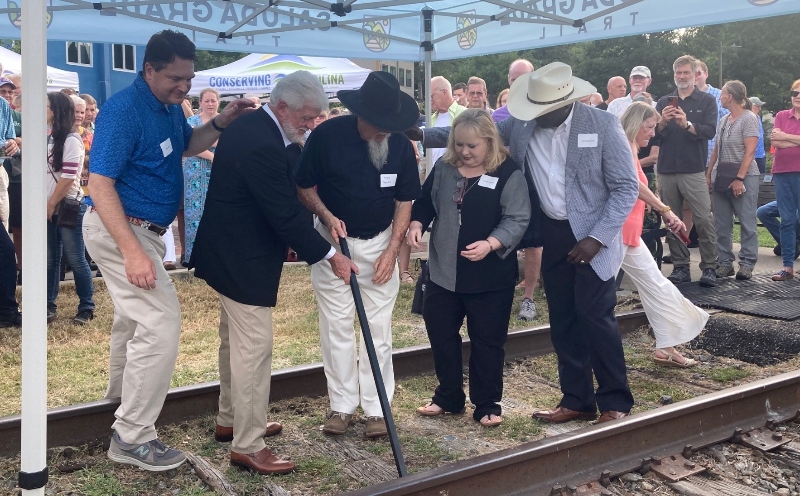Five questions for: Toby Jenkins, N.C. Wildlife Resources Commission
Published 2:46 pm Wednesday, January 2, 2019
Sgt. Toby Jenkins is a 23-year veteran with the North Carolina Wildlife Resources Commission Law Enforcement Division. Jenkins has served as an FTO (Field Training Officer), general instructor, firearms instructor, special weapons instructor and is a certified SWAT operator
through the North Carolina Justice Academy. He lives in Polk County with his wife, Billie, and daughters, Lindsey and Maddie. Jenkins is a licensed drone pilot and enjoys filming and producing drone videos in his spare time. Jenkins and his family attend Crossroads Baptist church in Columbus.
What is the North Carolina Wildlife Resources Commission?
Trending
The North Carolina Wildlife Resources Commission Law Enforcement Division is the agency charged with enforcing in the states hunting, fishing, trapping and boating laws.
What are your responsibilities as a game warden?
The law enforcement division is charged with enforcing the game, fish and boating laws of North Carolina as established by the North Carolina General Assembly and the North Carolina Wildlife Resources Commission. Game wardens are state law enforcement officers, with arrest authority for state and federal violations. Each holds a basic law enforcement training certification.
In particular, game wardens enforce the game, fish and boating laws to protect the resources of the state and the safety of its citizens. They can arrest for any criminal offense committed in their presence.
Game wardens in Polk County make many other arrests each year, especially in the Green River Cove area, such as for littering and alcohol offenses, DWIs, and numerous drug charges.
What was your motivation for getting into the profession?
Trending
I grew up hunting and fishing in the mountains of western North Carolina. I saw and heard about violations taking place in my local community and wanted to make a difference.
One example, in the past two years in Polk County, we have apprehended and prosecuted several poachers who were killing deer in the River Road and Hunting Country areas of Polk County. In two separate cases, we caught five people who had illegally poached over 40 deer in the area.
Most of the deer were being shot at night, between midnight and daylight, by spotlighting the deer and then cutting the heads off, leaving the carcasses in the fields.
This month [November], we apprehended two South Carolina men who had killed over 18 deer illegally in the River Road area by driving around shooting the deer from the road with a rifle. The season was closed for gun hunting, and men were shooting onto private property. Discharging a firearm from a vehicle/roadway, both day and night, is extremely dangerous.
We’ve had poachers who illegally take wildlife, giving decent hunters a bad name.
In a lot of the cases, it’s the legal hunters who are hunting in the woods and observe these violations and report them to us and assist us in detecting and prosecuting these serious cases involving our wildlife resources.
What do you enjoy most about your job?
Catching serious poachers who pose a hazard to public safety as well as detrimental to our wildlife resources. When you receive reports of serious wildlife violations and spend the time working the case and follow through with the cases until they are prosecuted in the court system, it’s very rewarding.
Also, introducing our youth to hunting and fishing opportunities is one of the most rewarding aspects of our job.
What makes the Foothills’ wildlife so special and worth protecting?
My patrol area includes Polk, Henderson and Transylvania counties. I also work areas of Rutherford County from time to time.
In Polk County, we have one of the highest populations of wildlife in western North Carolina. We have over 100 miles of trout streams in my area; five lakes; The Green River Game Lands, which is over 15,000 acres; Dupont and Headwaters state forests; Pisgah National Forest, which is over 100,000 acres; The Blue Ridge Parkway; two state parks, Chimney Rock and Gorges; in addition to all the privately owned lands in the area. Across North Carolina, we usually have one officer per county, so it’s a challenge to enforce the laws as well as conduct the hundreds of programs we offer each year.
Anyone reporting wildlife violations should call 1-800-662-7137, 24/7.






